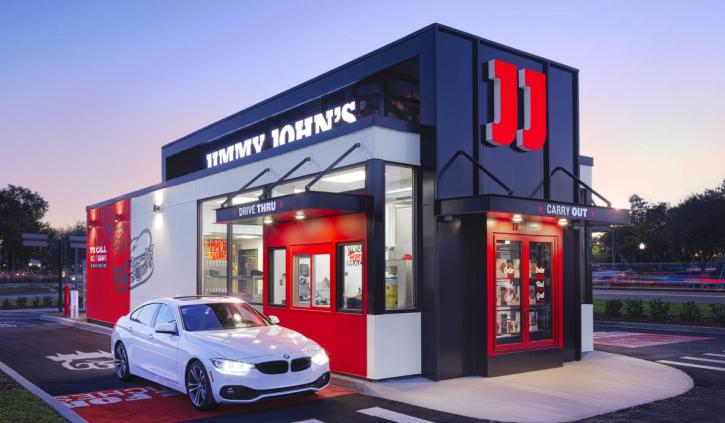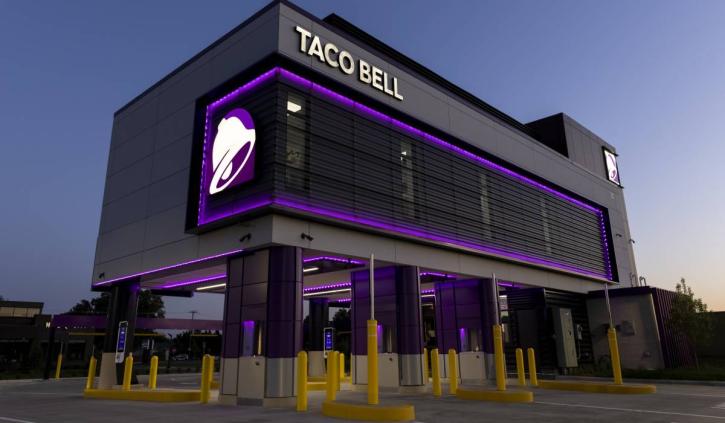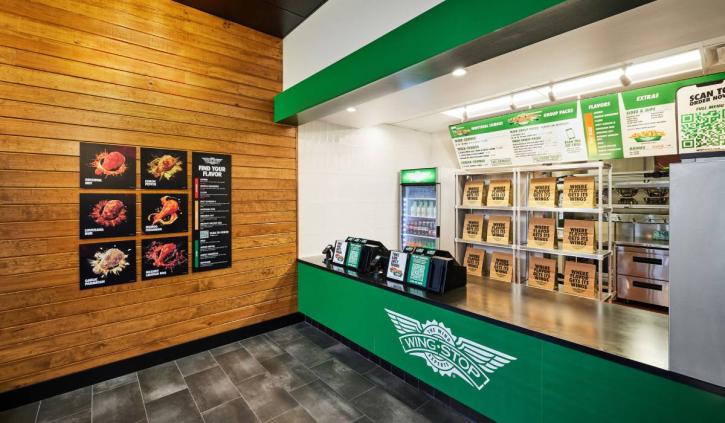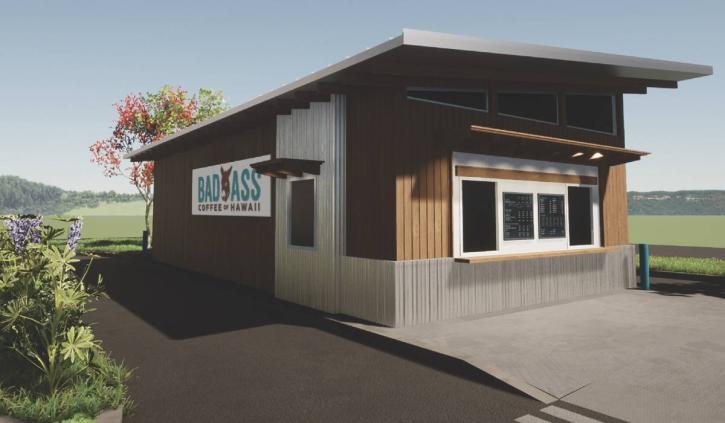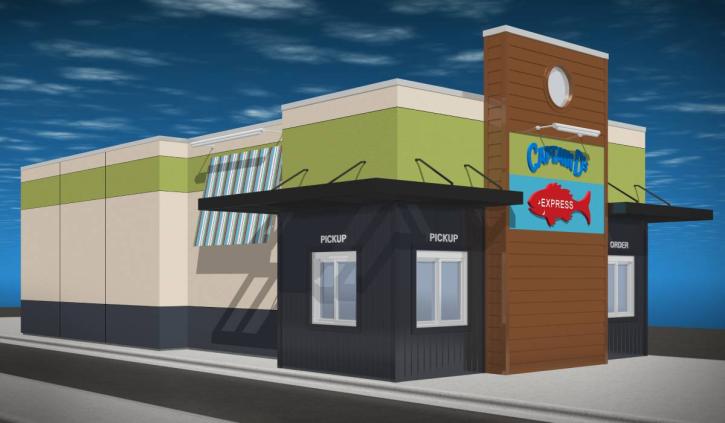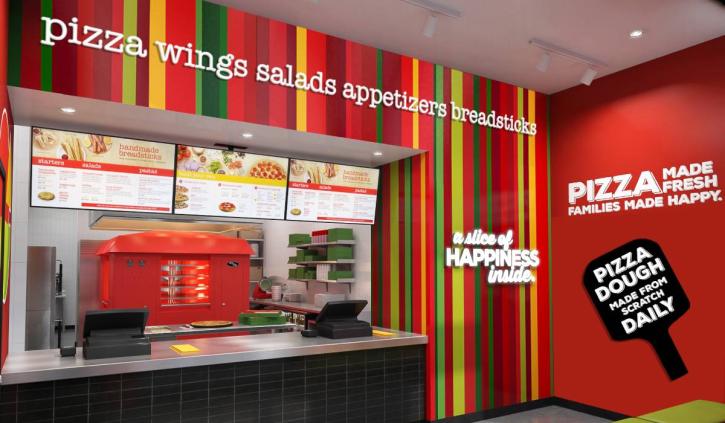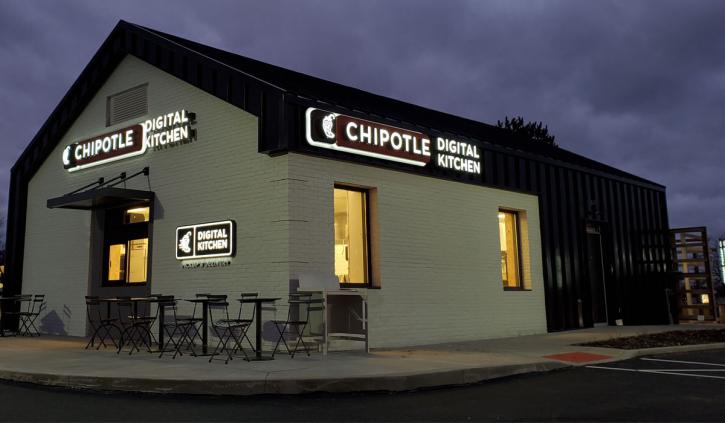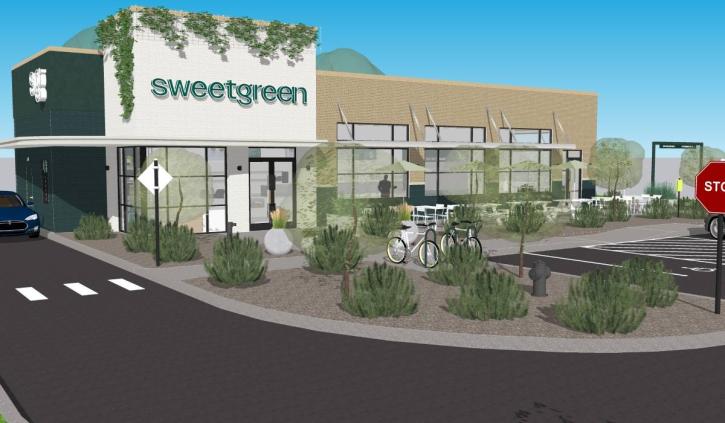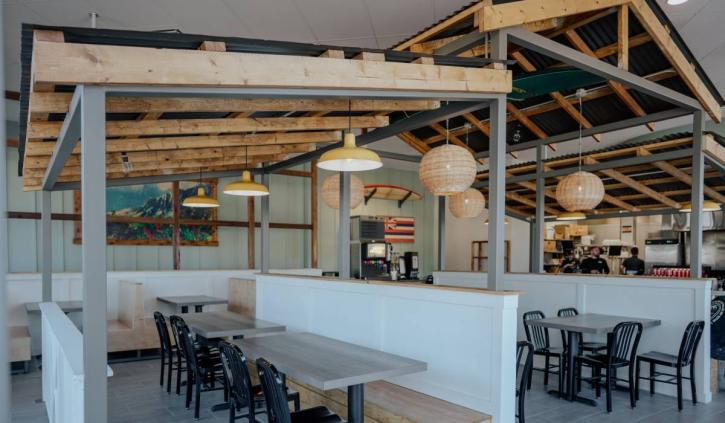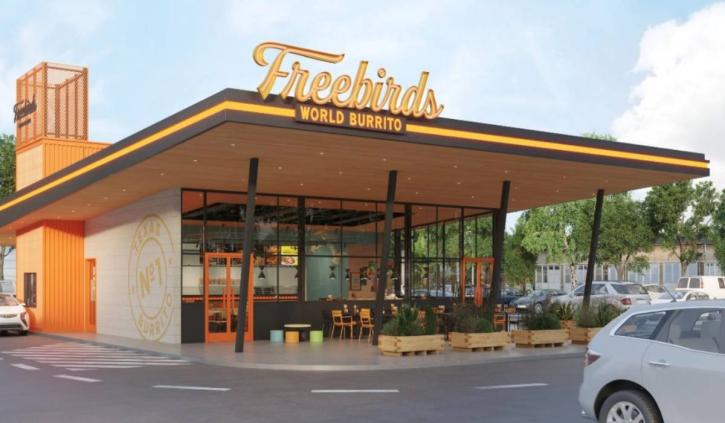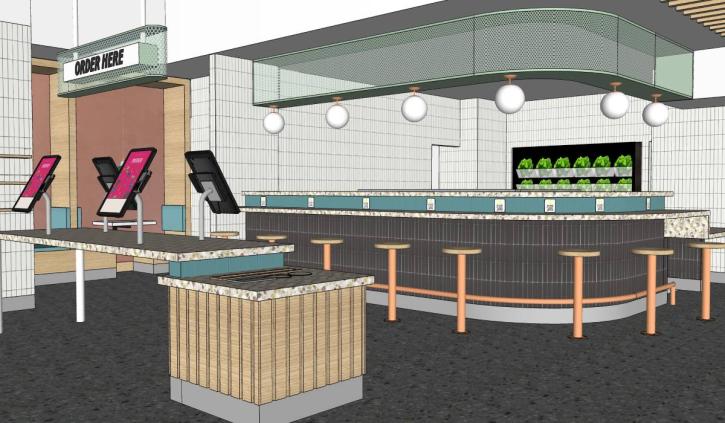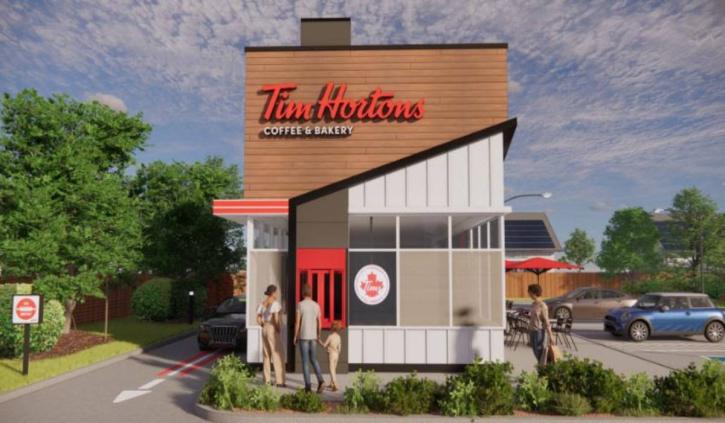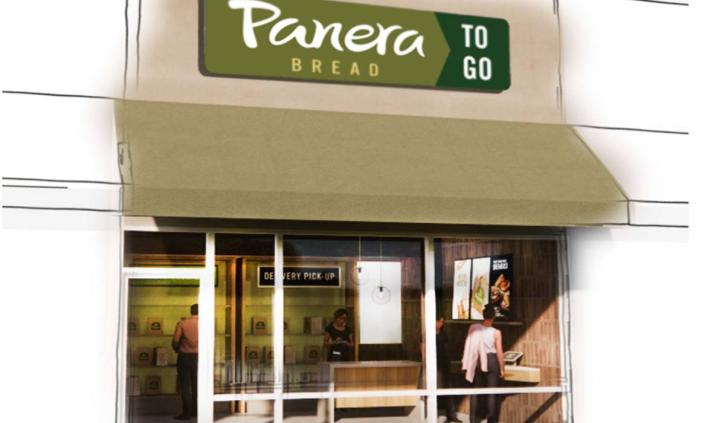13 Restaurant Designs Disrupting the Fast-Food Industry
The National Restaurant Association’s 2022 State of the Industry offers several notable trends on where consumers stand with off-premises.
Fifty-four percent of adults said purchasing takeout or delivery is essential to the way they live, including 72 percent of millennials and 66 percent of Gen Z. Sixty percent are more likely to order off-premises from a restaurant than they were before COVID, including 70 percent of millennials and Gen Z. And here’s the key—37 percent said they aren’t ordering as much delivery or takeout as they like, which is 7 percentage points below January 2020. The stat suggests consumers have successfully integrated the numerous off-premises options into their routines, the Association said.
Restaurants have responded accordingly, with slimmer prototypes that even cut out the dining room at times. Some are cashless, meaning customers can only order through the app or website. This not only fulfills consumers’ desire for convenience, but also saves on construction and labor.
Here are 13 restaurants that have rolled out new designs intended to capture the long-term trajectory of the restaurant consumer.
1. Jimmy John’s
Drive-thru-only restaurants are on the rise in the restaurant industry. Sandwich chain Jimmy John’s introduced its first in February. The new prototype is located in Bartow, Florida, and features dual lanes and windows. One side of the store is dedicated to mobile orders. Customers can also choose to pick up their order from carryout lockers. This location is outfitted with Jimmy John’s new brand refresh done by design agency ChangeUp.
“This new drive-thru only model represents our continued commitment to evolve with our customers and serve the best, freshest sandwiches with speed and efficiency,” Andrew Bello, Inspire Brand’s vice president of design and architecture, said in a statement.
2. Taco Bell
Taco Bell’s innovative prototype—and arguably the most ambitious in the restaurant industry—opened in Brooklyn Park, Minnesota.
The prototype boasts four drive-thru lanes. Three are specifically for mobile orders and third-party delivery pickup, while the fourth is a traditional lane with a speaker box and menu board. For each of the three mobile order drive-thru lanes, there’s a digital check-in kiosk where customers/delivery drivers scan a QR code so Taco Bell can identify the order and prepare it for pickup. After customers complete their order in the drive-thru, a Taco Bell employee places the meal in a proprietary vertical lift system that transports the order to guests.
3. Wingstop
Wingstop announced an off-premises prototype in early February. Dubbed the “restaurant of the future,” Wingstop has a goal to digitize all of its transactions. Located in a Dallas shopping center, the space is about 400 square feet less than a typical restaurant at 1,300 square feet.
“A glimpse into our Lovers Lane location is a glimpse into the future of Wingstop—focused on 100 percent digital transactions, seamless back of house operations, ongoing flavor innovation, and a business model centered around our fans, who love to dine off-premise with friends, while gaming, or just about anywhere you can think of,” Marisa Carona, chief growth officer, said in a statement.
This prototype is cashless and utilizes QR technology if the customer did not order ahead. The model is also committed to sustainability with Energy Star equipment and grease extraction.
4. Bad Ass Coffee of Hawaii
Unveiled in March, coffee franchise Bad Ass Coffee of Hawaii has a new prototype that prioritizes flexibility with double drive-thru lanes and streamlined order pickups.
The prototype with the full café and drive-thru model is about 1,650–1,800 square feet and will be located in Hendersonville, Tennessee, in Q3. Another variation of the model includes a freestanding drive-thru model with pickup windows and no interior café that is about 500 to 740 square feet and will roll out by Q4.
Franchisees will be able to choose which store models work best for their location and market. These options include: the traditional inline/endcap store with the café and drive-thru, a freestanding single or double drive-thru kiosk with pickup windows and no interior café seating, a freestanding full café with drive-thru and exterior seating, or a nontraditional kiosk that could be located in grocery stores, shopping malls, airports, or transportation centers.
“Flexibility is a big driver for accelerating our franchise expansion,” Scott Snyder, CEO of Bad Ass Coffee of Hawaii, said in a release. “With a roster of buildout models, we’re able to better address consumer needs and give our franchisees the freedom to open a Bad Ass Coffee model that makes sense in their desired market.
5. Captain D’s
Seafood fast casual Captain D’s new “Express” prototype is significantly smaller than its normal stores with only a drive-thru and walk-up window for ordering and picking up. Two out of their 14 openings this year will feature this design.
“There is a growing momentum that we’re leaning into, and it’s rewarding to see both our company-owned stores and our franchisees benefit from our best-in-class support, unique niche in the fast casual space and flexible restaurant prototypes,” Brad Reed, chief development officer, said in a statement.
6. Peter Piper Pizza
Pizza chain Peter Piper Pizza introduced an off-premises-only location in Phoenix. The brand reports its off-premises sales account for more than 40 percent at corporate-owned locations.
The prototype is 15 percent the size of a typical full-service Peter Piper location. The store serves a full menu and has full-size kitchens with a Roto-Flex pizza oven that can make over 200 pizzas per hour. Also, with the smaller size comes lower operational costs. Full-service restaurants have between 30-40 positions, including teams covering kitchens, large parties, and ticket redemption. Meanwhile, the to-go store only requires between five and eight positions.
“Based on the success of these new units, we believe the concept will be attractive to our current and potential franchisees and will allow further brand penetration in existing and new markets at a substantially lower investment with a very attractive rate of returns,” David McKillips, CEC Entertainment president and CEO, said in a release.
Two more locations have already been pinned down, and McKillips says the brand is currently on the hunt for a third spot in the state.
7. Chipotle
In December, the fast casual unveiled a “Chipotlane Digital Kitchen” in Cuyahoga Falls, Ohio, which has no dining room or front line. Instead, the store has a walk-up window to go along with the Chipotlane pickup lane.
This new iteration of the “Chipotlane,” the completely digital drive-thru lane where customers order ahead, has a kitchen with a make-line for digital orders placed through the Chipotle app and website. Then, guests can pick up their orders in the Chipotlane or at the walk-up window. The store also boasts a patio where customers can eat.
“Chipotlanes are a key growth strategy for the brand,” Tabassum Zalotrawala, Chipotle’s chief development officer, said in a statement. “Our portfolio of approximately 300 Chipotlanes perform with the highest margins across the board, so we continue to evolve our restaurant design with formats such as the Chipotlane Digital Kitchen to best suit our growing digital business.
8. Sweetgreen
Salad fast casual Sweetgreen is following many brands into the drive-thru market, beginning in Schaumburg, Illinois. The concept, dubbed “sweetlanes,” will be debuted within the next year, the company said.
This pilot store will include the chain’s typical dine-in option, but the drive-thru will be dedicated to online orders through Sweetgreen’s digital platforms. The drive-thru also features an observation window so customers can watch the food prep while they pick up their order.
“We are always innovating to provide more convenience for our customers, which is why we’re excited about our first ‘sweetlane’ concept in Schaumburg,” Nicolas Jammet, co-founder and chief concept officer, said. “Digital customers are our most habitual users and we believe this new format will provide us with more options to connect people to real food.”
9. Mo’Bettahs
Hawaiian-style restaurant Mo’Bettahs is rebranding to better showcase Hawaiian culture. Founders and brothers Kimo and Kalani Mack grew up in Oahu and wanted to bring a piece of that culture to the design of their restaurants.
The first prototype debuted in Plano, Texas, and features colors that portray scenes of plants, flowers, and waters native to Hawaii.
“We have updated our logo to give it a vintage Hawaiian surf community feel and our restaurant design to further enhance the feeling that you are stepping into someone’s backyard on the island to enjoy some authentic Hawaiian BBQ,” Rob Ertmann, Mo’Bettahs president, said in a release.
This rebranding prototype will also be featured in the brand’s 18 new restaurants, all scheduled to open by the end of 2022.
10. Freebirds Burrito
Freebirds World Burrito announced a new restaurant prototype will debut later this year. These future locations will be freestanding or endcap and range from 1,500 to 3,500 square feet. The model also touts a covered area for outdoor dining and a mobile pick up station.
“Our new prototype is easily scalable and adaptable which means we can bring our craveable and endlessly customizable burritos and bowls to even more communities across Texas,” Alex Eagle, CEO of Freebirds World Burrito, said in a release.
11. Chopt
Chopt has a new sustainable restaurant design, which opened in Virginia in the Ballston Exchange. The location was specifically designed to be more eco-friendly.
Elements of this sustainable prototype include an energy efficient HVAC system, an energy efficient kitchen, and streamlined operations that lower the total energy consumption.
“Sustainability is on everyone’s mind right now and it’s a focus for us as we build and design each new restaurant,” Dennis Lee, VP of development at Founders Table, said in a release.
The restaurant is 1,912 square feet, seats 16 guests total, and is the first Chopt to have completely contactless ordering.
12. Tim Hortons
Tim Hortons announced in June it is launching two new prototypes. One is a drive-thru-only concept that is only 900 square feet, and designed to promote efficiency. Drive-thru customers can order ahead on the Tim Hortons app or take advantage of mobile order parking spots. The other prototype is a restaurant with 24 seats and is 1,600 square feet.
“This is an exciting time for Tim Hortons as we update certain aspects of our model to maximize the experience for Guests and improve efficiency for the operators who are driving our expansion in the U.S.,” Alexandra Caplan, senior manager of business development, said in a statement. “These two restaurant formats allow franchisees to develop a model that fits their local demand. That flexibility is key to growing our brand in various markets.
13. Panera
Panera announced in June the opening of its first digital-only store called Panera To Go. The first restaurant is in Chicago and is the first of three locations scheduled to open in 2022. The other two will be in California and Washington, D.C.
Customers will enter this 2,500-square-foot Panera and pick up their orders from to-go shelves. They can only order through the app or website to utilize the Panera To Go store. This prototype is designed for urban areas where dining space is not as necessary.
“Panera To Go creates yet another access point for our guests, via Rapid Pick-Up or Delivery, in locations where Panera has not historically operated,” Eduardo Luz, chief brand and concept officer, said in a statement.
ISABELLA SHERK | 13 Restaurant Designs Disrupting the Fast-Food Industry
| www.qsrmagazine.com

